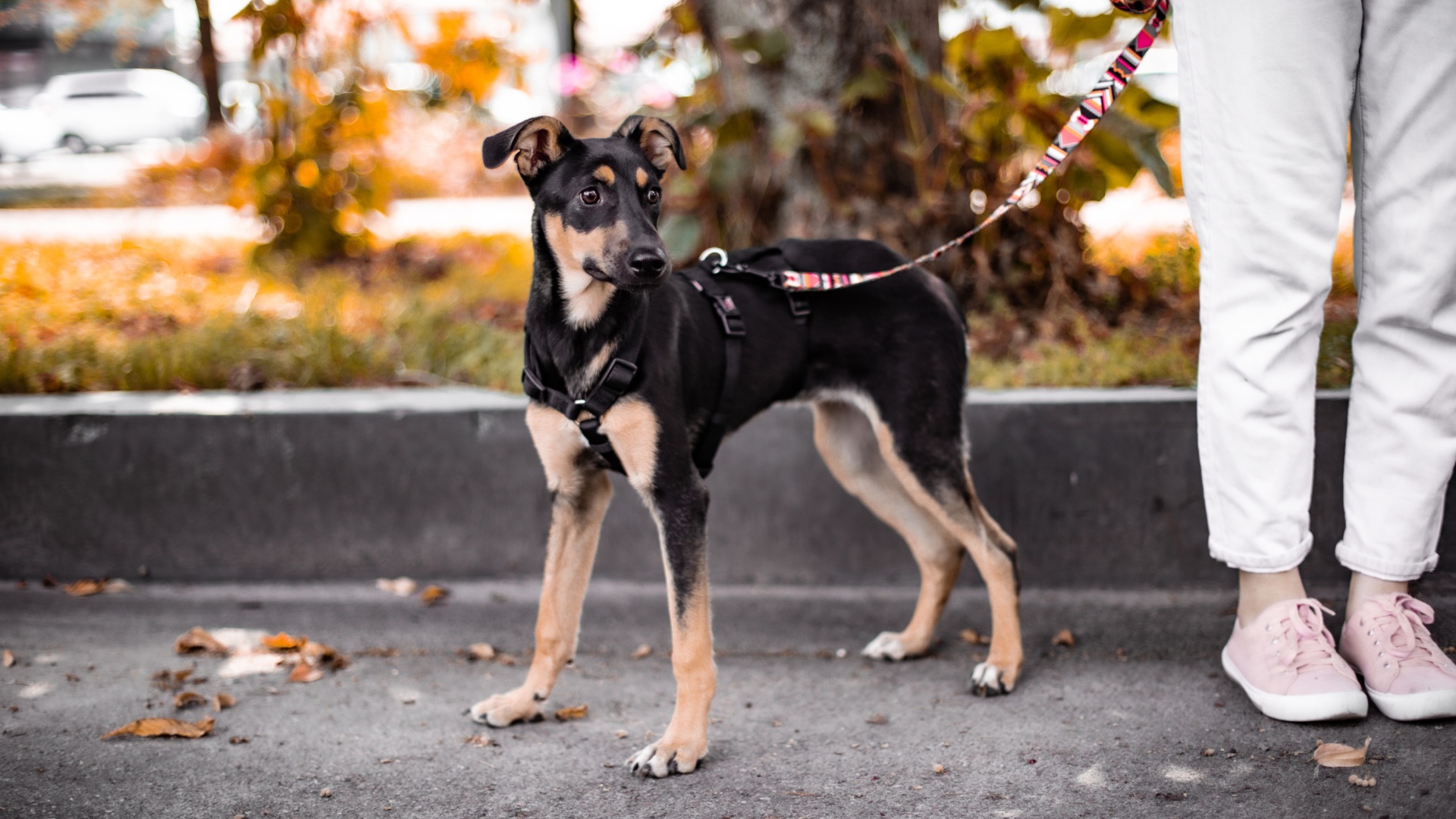
Of all the challenges you'll face as a dog owner, dealing with your pup's reactivity is one of the hardest.
An overreaction to common stimuli in their environment, reactivity can present in a variety of different ways. Perhaps your dog lunges at other dogs or barks incessantly every time the doorbell rings. Whatever the behavior, reactivity requires more than just the best dog treats in order to be overcome.
When it comes to what causes reactivity in dogs, the answer is complex. While reactive behavior can have many different causes, three of the most common are anxiety, improper socialization and a lack of education around dog walking etiquette.
Thankfully, you needn't resign yourself to a life of tearing your hair out and feeling trapped in your home because with lots of time, love, and patience, reactivity can be overcome.
With that in mind, expert trainer Amelia Steele has shared five simple training tips that will help you on your journey to healing your dog's reactivity. Let's take a look...
1. Start with well-being: "Reactive dogs often struggle to regulate their emotions and nervous system," explains Steele. "I start every training plan by reviewing the dog's needs and ensuring they have appropriate outlets for natural behaviors."
When training your reactive dog, this might look like providing them with plenty of opportunities to sniff and roll around, as well as ensuring there's plenty of open space around them to help them stay calm.
2. Implement a management system: "Management is the process of preventing a behavior from happening," Steele says. "In the case of reactivity, management can be a series of behaviors or actions you can take to avoid a trigger or reduce the intensity of a reaction."
3. Give yourself breaks: It can be really tempting to throw yourself into training, but investing in your own mental health is just as important as investing in the well-being of your reactive pup. "It's important to have rest days," Steel confirms, "so try to work out at least one walk per week that gives you the chance to switch off and chill out with your dog."
4. Make a plan and stick to it: "It's great to be able to problem solve and shift your approach when you need to, but it's also important to know when to stay consistent. Without one solid, consistent approach, you're likely to go round in circles," explains Steele.
5. Understand why your dog is reactive: Before you can help your dog overcome their reactivity, you first need to understand the cause of it and the emotion behind it. "When you approach your dog's behavior from an empathetic stand point, you'll find that you start working as a team with your dog instead of feeling like they're against you."
When it comes to how to calm a reactive dog, understanding your pup's particular triggers will also help you tailor your support to meet their specific needs.
Training a reactive dog takes time, patience and consistency. Check out these practical tips for training your dog on your own, or reach out to a qualified professional if you feel you and your pup would benefit from some 1:1 support.







